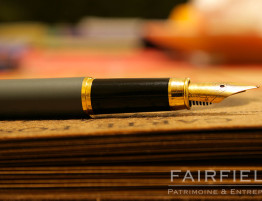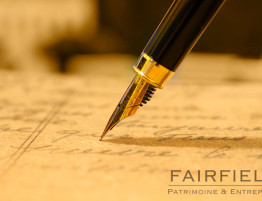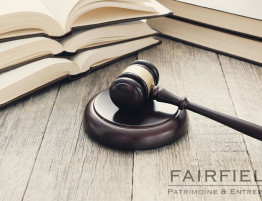
A handwritten (or holographic) will is a private deed that presents advantages due to its secret nature. It does not require any registration or administrative formalities, assistance from a solicitor not, for instance, being a condition of validity for this type of will.
The holographic will is subject to validity conditions provided under article 970 of the French civil code. If these conditions are not met, the act can be challenged.
1) Validity conditions of the will:
The will must firstly be entirely handwritten by the testator.
The writing must be comprehensible; the will is however not subject to a specific language or format. The act will be void if a mechanical mean of writing is used such as drafting by computer or typewriter.
Any verbal testament will not have legal effect, even if it is recorded on audio or videotapes. Material assistance in drafting is accepted as long as the testator handwrites the will and the writing is recognizable. Assistance in the drafting of the will must ensure the expression of the signatory’s own will. This process is, however, not recommended even if in practice, judges approve as much as is possible, wills drafted with the assistance of a third party.
Indeed, a will cannot be joint; it must be personal.
Secondly, a full date with the day, month and year must appear in the will.
Case law allows certain exceptions: an incomplete date can be restituted according to the terms of the will or a date can be considered indifferent if no doubt exists on the testator’s legal capacity. However, the judges will rule on the nullity of the will if no element allows to date it. This also applies when the testator deliberately gives a false date to the will.
Finally, the will must be signed. The signature can be simplified as long as it demonstrates without doubt the identity of the testator. It must be placed at the end of the text, failing which; the will is null and void. In the presence of multiple sheets, it is recommended to number and initial each page, as well as sign the end of the document.
If the testator decides to include bequests (“legs”) while drafting his will, he must express it clearly and without doubt, in order to avoid any risk of assimilation to a simple wish, which the inheritors are not bound to execute. Sentences such as: “I bequest this asset to X” are preferred instead of: “I wish to or I would like to bequest”. The testator must specify the beneficiaries of the bequests by indicating their surname, first name, date and place of birth, address and if applicable, their family tie with the testator.
Once drafted, it is advised to publish the will to the last wills central file (“fichier central des dernières volontés”). The notary in charge of administering the succession has the obligation to consult this file; by doing so he will be able to acknowledge the existence of the will before carrying out the devolution of the deceased’s estate.
2) Challenge of the will:
If the conditions of validity of article 970 of the French civil code are not met, the holographic will is void.
The judge must rule on a potential challenge of the will.
If the heirs consider that the will has not been written or signed by the testator (article 287 of the French civil code), they can act in writing verification (“en verification d’écriture”).
The party that challenges the validity of the will must prove the veracity of the signature (Civ. 1ère, 2 mars 1999).
The inheritors can also prove by any means the fraud as to the date of the will.
The grounds of challenge can concern an alteration of mental capacities of the testator or a defect of consent during the drafting of the will or even, the violation of a compulsory heir’s (“héritiers réservataires”) rights.
Maître Frédéric Michel – Fairfield Law firm | Lawyer in Cannes









